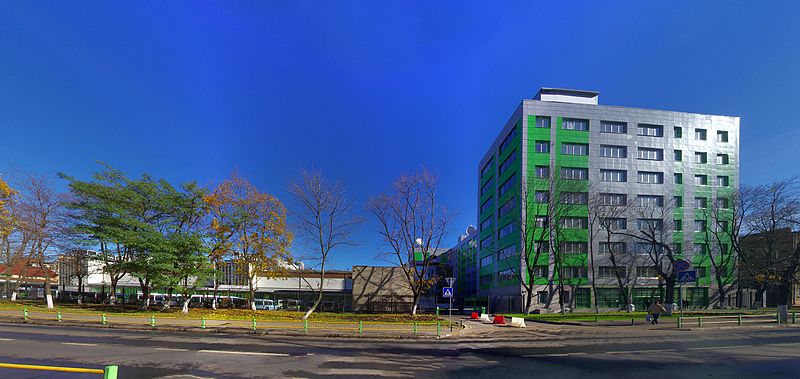Aside from economic sanctions on Russia, the West has also sought to target its media outlets. A European court has upheld the broadcast ban on the Russian state-owned channel Russia Today as part of the bloc’s sanctions.
The Luxembourg-based General Court ruled Wednesday to uphold the broadcast ban on Russia Today or RT as part of the European Union’s sanctions on Russia for its invasion of Ukraine.
The decision to uphold came as Moscow appealed the initial sanction, which was imposed on Russia over allegations that the channel spreads disinformation.
“The Grand Chamber of the General Court dismisses RT France’s application for annulment of acts of the Council, adopted following the outbreak of the war in Ukraine, temporarily prohibiting that organization from broadcasting content,” said the ruling.
“The limitations on RT France’s freedom of expression which the restrictive measures at issue are liable to have are proportionate, inasmuch as they are appropriate and necessary to the aims pursued,” said the ruling.
The Kremlin responded to the ruling by saying it would take similar measures against Western media outlets. Kremlin spokesperson Dmitry Peskov told reporters in a phone call that while RT was unable to operate in Europe, he hoped that it would find loopholes to resume broadcasts.
The broadcast ban by the EU also targeted other Russian media outlets, such as Sputnik and its subsidiaries, barring their contents from being broadcast or disseminated by European operators.
At the time, European Commission President Ursula von der Leyen said those broadcasters would not be able to “spread their lies” to justify Russia’s invasion of Ukraine and cause division in the bloc.
Ukraine said this week that it hopes the deal by the United Nations to export grain from the Black Sea ports would be implemented despite missile strikes from Russian forces in the same region. Both Russia and Ukraine signed an agreement in Istanbul, overseen by the UN and Turkey.
The officials agreed that there would be no missile attacks on ships moving through the Black Sea to Turkey’s Bosphorous Strait and on to markets. Both sides also said a joint monitoring center would be established.



 Trump Backs Nexstar–Tegna Merger Amid Shifting U.S. Media Landscape
Trump Backs Nexstar–Tegna Merger Amid Shifting U.S. Media Landscape  New York Legalizes Medical Aid in Dying for Terminally Ill Patients
New York Legalizes Medical Aid in Dying for Terminally Ill Patients  Trump’s Inflation Claims Clash With Voters’ Cost-of-Living Reality
Trump’s Inflation Claims Clash With Voters’ Cost-of-Living Reality  Trump Congratulates Japan’s First Female Prime Minister Sanae Takaichi After Historic Election Victory
Trump Congratulates Japan’s First Female Prime Minister Sanae Takaichi After Historic Election Victory  Bangladesh Election 2026: A Turning Point After Years of Political Suppression
Bangladesh Election 2026: A Turning Point After Years of Political Suppression  Japan’s Prime Minister Sanae Takaichi Secures Historic Election Win, Shaking Markets and Regional Politics
Japan’s Prime Minister Sanae Takaichi Secures Historic Election Win, Shaking Markets and Regional Politics  Trump Slams Super Bowl Halftime Show Featuring Bad Bunny
Trump Slams Super Bowl Halftime Show Featuring Bad Bunny  Jack Lang Resigns as Head of Arab World Institute Amid Epstein Controversy
Jack Lang Resigns as Head of Arab World Institute Amid Epstein Controversy  Nicaragua Ends Visa-Free Entry for Cubans, Disrupting Key Migration Route to the U.S.
Nicaragua Ends Visa-Free Entry for Cubans, Disrupting Key Migration Route to the U.S.  India–U.S. Interim Trade Pact Cuts Auto Tariffs but Leaves Tesla Out
India–U.S. Interim Trade Pact Cuts Auto Tariffs but Leaves Tesla Out  Trump Signs Executive Order Threatening 25% Tariffs on Countries Trading With Iran
Trump Signs Executive Order Threatening 25% Tariffs on Countries Trading With Iran  U.S.-India Trade Framework Signals Major Shift in Tariffs, Energy, and Supply Chains
U.S.-India Trade Framework Signals Major Shift in Tariffs, Energy, and Supply Chains  Pentagon Ends Military Education Programs With Harvard University
Pentagon Ends Military Education Programs With Harvard University  Trump Administration Appeals Court Order to Release Hudson Tunnel Project Funding
Trump Administration Appeals Court Order to Release Hudson Tunnel Project Funding  Anutin’s Bhumjaithai Party Wins Thai Election, Signals Shift Toward Political Stability
Anutin’s Bhumjaithai Party Wins Thai Election, Signals Shift Toward Political Stability  Ohio Man Indicted for Alleged Threat Against Vice President JD Vance, Faces Additional Federal Charges
Ohio Man Indicted for Alleged Threat Against Vice President JD Vance, Faces Additional Federal Charges  US Pushes Ukraine-Russia Peace Talks Before Summer Amid Escalating Attacks
US Pushes Ukraine-Russia Peace Talks Before Summer Amid Escalating Attacks 































